Music Licensing for Businesses, Simplified.
Navigating music licensing can be a daunting task for businesses, but with Feed.fm, it's a breeze. Our platform simplifies the process, making it fast, easy, and completely legal to stream top-tier music from major labels in your apps, products, and digital experiences.
Music drives engagement
Incorporating skillfully selected music into your app, interface, or platform has been shown to boost customer engagement and drive repeated usage.
* Feed.Fm proprietary data 2022
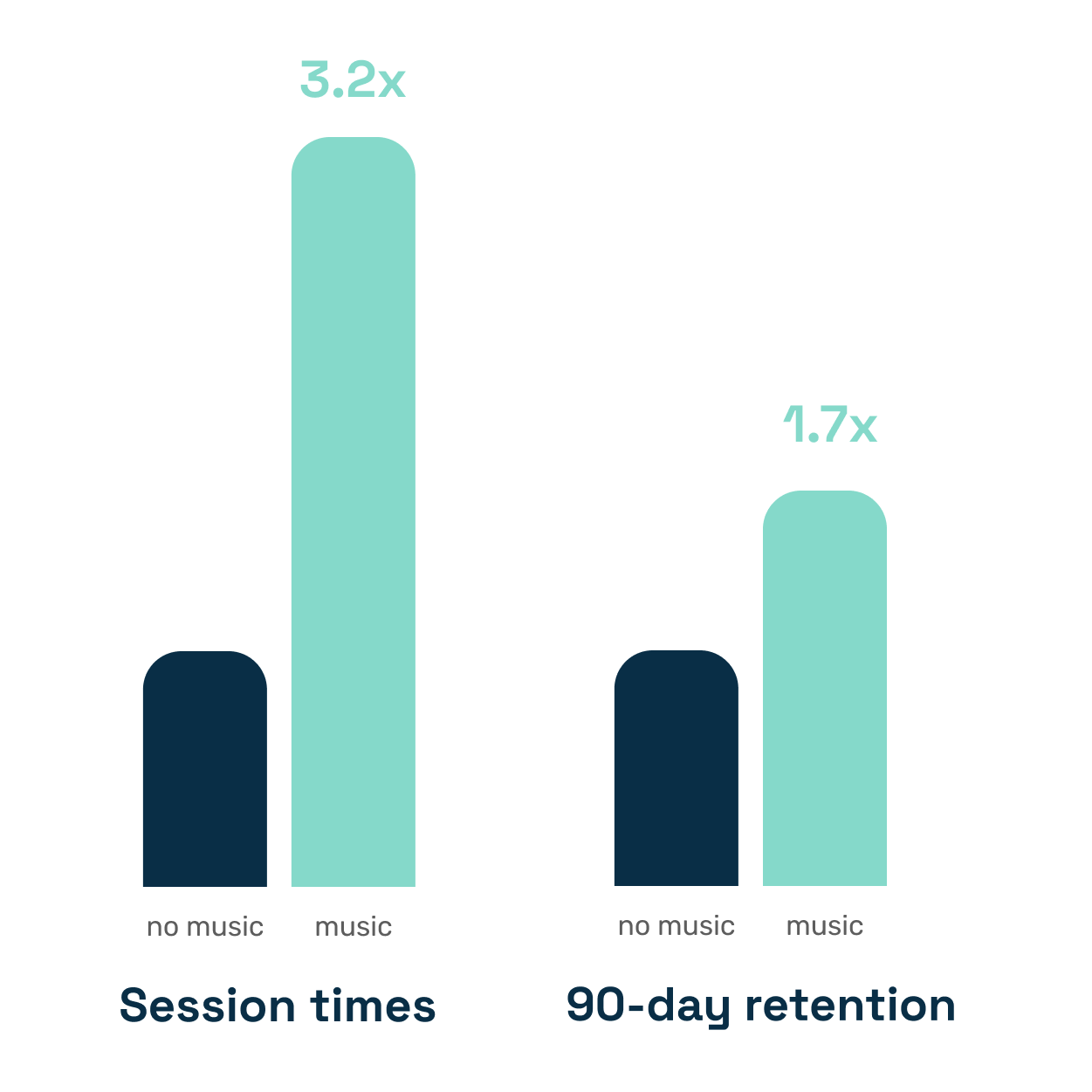
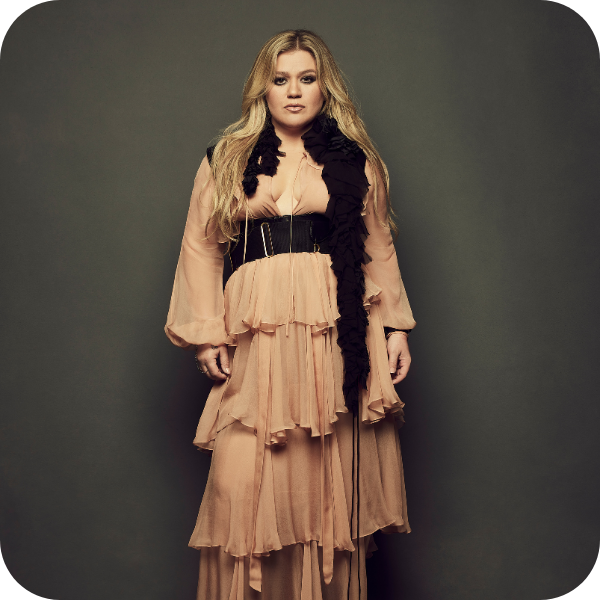
WMG Artist Kelly Clarkson, Photo Credit Brian Bowen Smith
Music licensing is complex
Sharing music with your customers is a great way to enhance their experience, but navigating the complex world of music licensing can be a daunting task. Negotiating directly with rightsholders can take a significant amount of time and money, while using generic royalty-free music may not provide the desired impact.
Whether you're sharing tunes in your app, on your blog, or in your store or gym, obtaining permission and compensating the rightsholders is a must. While some small business owners may opt for streaming from their personal Spotify account, this is not a legal solution.
Learn more about music licensing with our Music Licensing 101 Guide
Intro to music licensing
Disclaimer: Please note this is not a substitute for legal advice, but a quick overview of the complex music licensing world.
Almost all the music you hear, and most likely the music you want to use, is copyrighted. This means that one or more parties own the rights to it. Using this music without paying the rightsholders can get your company into very expensive legal problems. In most cases, businesses will need multiple licenses for their company’s music usage, and in fact, may need multiple licenses for even just one song.
To start, one must understand that there are two copyrighted works in every recording. The first is the composition, which includes the notes and words. The composition is generally owned by the songwriters and their music publisher. The second is the sound recording, which is an artist’s recording of a composition. The sound recording is generally owned by the artist or record label.
In all cases, it is better to ask for permission than forgiveness.
Navigating direct deals
Negotiate Licenses
2-3 years $$
Pay Advances
Upfront $$$
Build music integration & reporting infrastructure
1-2 years $$
Manage data, reporting, rights holder payments
Even if you figure out licensing. . .
you still need a streaming system.
Let's say you hire an attorney experienced in music licensing, navigate three years of negotiations with multiple rightsholders, and pay the upfront advances to get access to the music. You are now sitting on a very expensive set of music files and are tasked with figuring out how you are going to integrate the music into your product and manage compliance, reporting, and payments.

There's never been an all-in-one solution until now
Feed.fm handles music licensing, rightsholder payouts, curation, technology integration, and analytics for our customers.
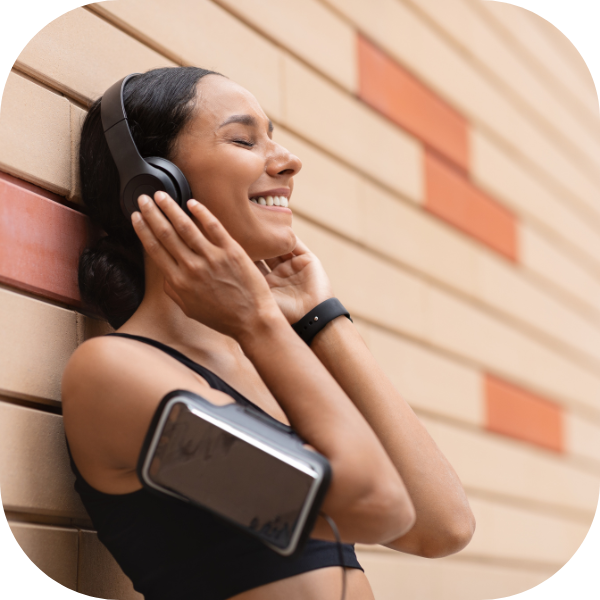
Why does it work?
Most people know intuitively that music is a motivator. And, there is an increasing body of research that shows music is performance-enhancing when paired with fitness. Music distracts from fatigue sensations, and athletes need less oxygen to do the same work. Pairing music and workouts delivers even stronger results when movements are synchronized to the music’s tempo.
And, not just any music will do . . .
Feed.fm makes in-product music licensing easy

Get Popular Music
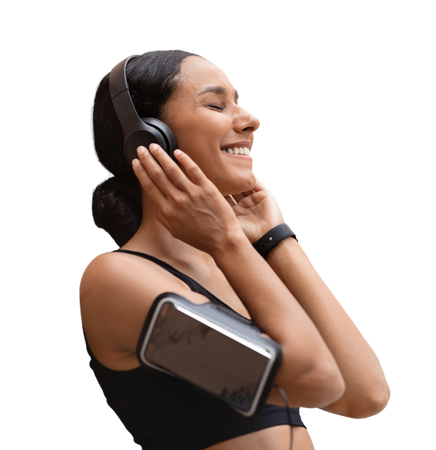
In Your App
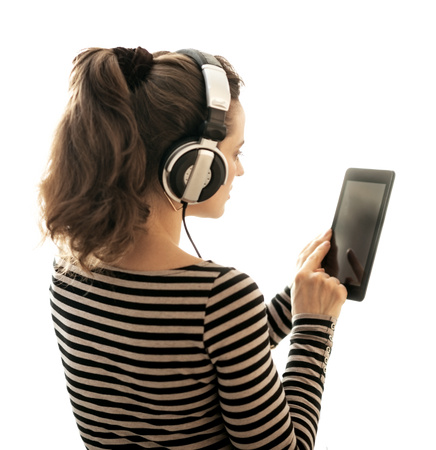
Legally
Fast-track your music licensing and integration
In less than 30 minutes with a Feed.fm music specialist, you will:
- Breathe a little easier knowing that there is a turnkey music licensing solution for in-product music streaming.
- Get inspired learning how other businesses have crushed their goals with effective music strategies.
- Feel confident that you’ve found a partner that can help you transform your digital experiences with music, legally.